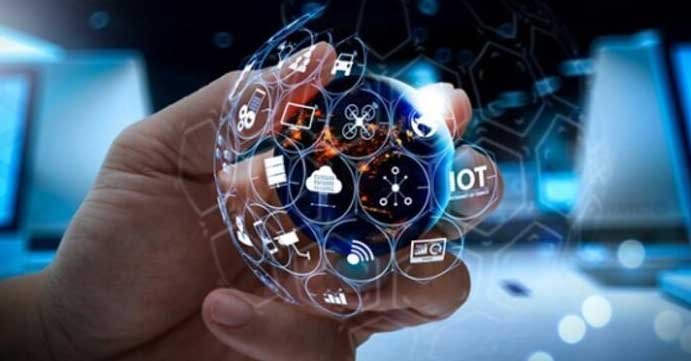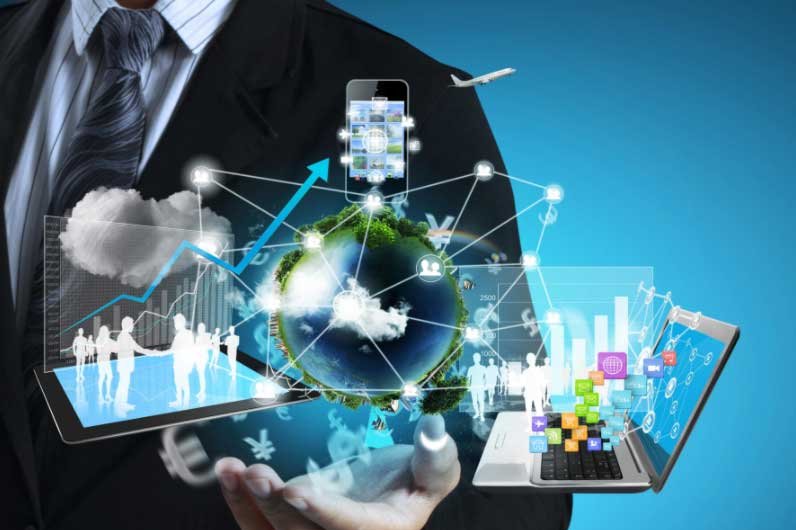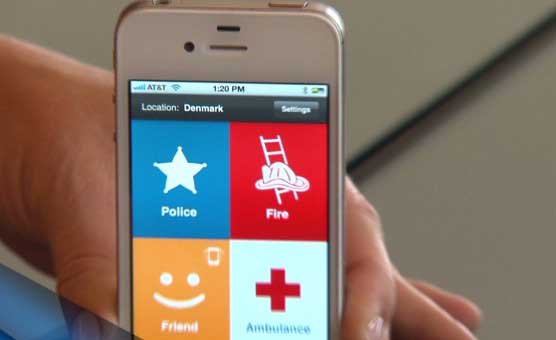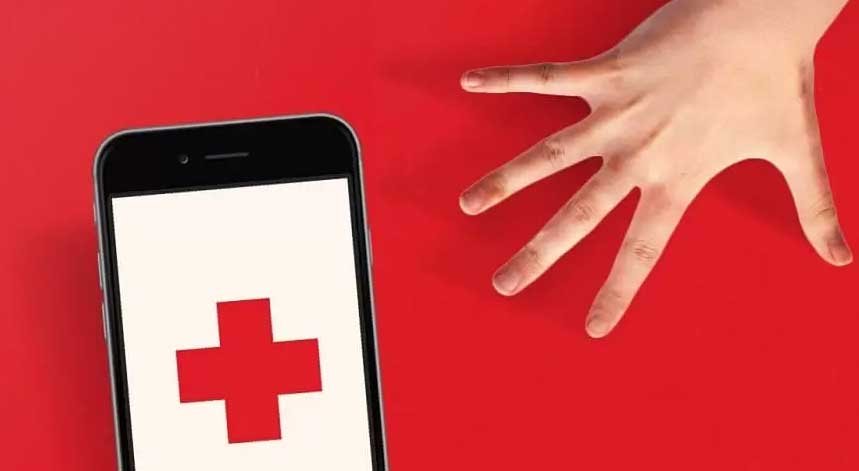Techno Gage
All About Technology
Technologies will change our world Soon
Never before has there been a time when technological progress has brought about such rapid developments on earth. Digitization and new technologies have fundamentally changed the world in recent years -
but there is still no end in sight. Instead, what is happening stimulates the imagination of what will be possible in the foreseeable future. As for today, it can definitely be said that innovative technologies are already in the starting blocks that will change the world again.For More Latest Update You can Visit: technogage.com

Technologies will change our world:
It is not as if there had not already been numerous inventions in the past that count as milestones in history: the car, for example, electricity or even the Internet. A world without all of these things would be hardly conceivable today and these developments were in turn the basis for new technologies. So it is an eternal cycle, but it has always been difficult to predict where it will lead in the future.
When the Internet was invented, hardly anyone assumed that one day Internet-enabled smartphones would become an integral part of everyday life. At this point in time, one can only guess which technologies will turn the world upside down in the coming years and what this will look like as a result. Some promising technologies that are currently still in their infancy definitely have the potential. But what are they?
The World Wide Web is becoming the "Internet of Things"
To stay with the example of the Internet, its development is far from over. Instead, it changes from day to day and an interesting trend can be observed here: Now, more “things” than people use the Internet. It is therefore also referred to as the Internet of Things ”.
This means that around 50 billion devices in the world will be connected to the Internet by 2020 and will use it independently.
The degree of automation grows and grows, expanding to more and more areas. Sensors measure and collect data, analyze, evaluate or even act automatically in one way or another based on this data. So it will be technologies like Zigbee, Z-Wave or 6LoWPAN that will fundamentally change the Internet and thus the whole world.
Cloud technology: when zettabytes float above clouds:
The Internet has also produced a new technology that goes by the beautiful name of the "cloud". The language is from the cloud, which was once invented for data exchange, but now has significantly more areas of application.

Digital storage has made external hard drives, floppy disks, CD-ROMs and other physical data storage devices from the past largely superfluous. With increasing security against Internet crime, it is used more and more in the commercial sector as well as with private Internet users.
The numerous advantages open up the best future prognoses for the cloud, especially in view of the significantly strengthened networks that the development in the area of data exchange will bring with it. It is only a matter of time before exabytes or even zettabytes can be pushed through the Internet - and thus the cloud will also gain in importance.
Artificial intelligence like from a sci-fi movie:
Many technologies that are part of everyday life nowadays were once visions of the future in sci-fi films. This raises the question of whether the human-like robots from the current Hollywood films could one day also be real? Experts are pretty sure the answer to that is a resounding "yes".
Artificial intelligence is developing at a rapid pace and has already fundamentally changed many industries. For example, in the first companies recruiting, job interviews are already being conducted with a computer, which evaluates the choice of words, tone, voice, etc. of the speaker and draws conclusions about his personality.
But that's just the beginning: Manufacturing robots have become indispensable in industry and robots should be able to learn, understand, speak and act independently in the foreseeable future.
A vision that scares many people, but at the same time could make everyday life a lot easier. So it remains exciting to see how the AI will continue in the future.
Autonomous vehicles make the roads safer:
A world without cars? Unthinkable! But soon there could be a world in which nobody has to sit behind the wheel anymore. The first prototypes of autonomous vehicles are already on the road. From Tesla to Google to numerous car manufacturers, many minds are currently working on concepts for autonomous driving. But they all agree that it is.
Also Read:
How technology can make the world a better place
Digital technology can help people in need in many ways. For example, emergency medical supplies can be delivered quickly and inexpensively with drones or aid funds for humanitarian purposes can be collected and distributed more efficiently via the blockchain. Or a special smartwatch with Braille allows blind people to read messages.
Malawi is one of the poorest and least developed countries in the world. High child mortality, malnutrition, disease, drinking water scarcity, lack of education and frequent natural disasters are just some of the problems that the Southeast African state is grappling with. The good news: Various aid organizations are working flat out to improve the lives of the people there. One of them is UNICEF, the United Nations Children's Fund.
As part of its aid work in Malawi, the children's aid organization also relies on the advantages of innovative technology. Only recently, together with the Malawi government, it opened an air corridor to test drones for humanitarian use.
In the future, the unmanned remote-controlled aircraft will take aerial photographs of the affected areas for monitoring the situation in the event of floods or earthquakes or, in emergencies, will enable the range of WLAN or cell phone signals to be extended. But the implementation of small, light deliveries such as medical emergency supplies should also be tested.
In the future, drones could also be used in other ways for the benefit of people, for example for reforestation in areas affected by deforestation. The British company BioCarbon Engineering has developed a system for this which is currently being tested as part of a project to regenerate mangrove ecosystems in Myanmar.
The procedure: After drones have identified an ideal area for planting, others fly out to shoot capsules containing seeds embedded in hydrogel into the earth. Not only should work be done much faster than planting by hand, but considerable cost savings can also be achieved.
In view of the current investment hype, word is likely to get around more and more that the blockchain technology underlying cryptocurrencies such as Bitcoin has considerable potential to simplify people's lives through the fast and secure transfer of money. However, it is less well known that in the future, aid funds for humanitarian purposes could be collected more efficiently and distributed more quickly.
This is exactly what the UNICEF Building Blocks pilot program, which is based on the Ethereum blockchain, is concerned with. The stated goal: to fight hunger in poorer countries.
Not having access to traditional banking services means that you cannot keep your money safe, save, invest or take out a loan, for example. So you literally have to live from hand to mouth, as is the case with billions of underprivileged people worldwide.
This is exactly where a blockchain-based app comes in that was developed by the New York start-up Blockchain for Change. Fummi is aimed at the homeless and provides them with a digital ID as well as access to financial services, government and private services - and at the lowest possible price.
Since people who live on the street usually have no Internet access, 3,000 smartphones with the "Fummi" app were distributed in the New York Bronx in December. Another 200,000 are to be spent by the end of June - this time not just in the “Big Apple”.
In contrast, most of the refugees who are currently coming to Europe do have a smartphone. The free app RefAid, which was developed by the British company trellyz, is aimed at them. Once the user is logged in, RefAid shows the most important offers from NGOs - such as food, sleeping places, health care and legal advice - in the area; including opening times and contact options.
The app can currently be used in 14 countries and is available in English, Arabic and Farsi. As one assures at trellyz, one only cooperates with trustworthy NGOs in order to avoid abuse.
Also Read:
- TECHNOLOGIES WILL CHANGE OUR WORLD SOON
- HOW TECHNOLOGY CAN MAKE THE WORLD A BETTER PLACE
- 5 LIFESAVING APPS FOR YOUR EVERYDAY LIFE
5 lifesaving apps for your everyday life
5 Lifesaving Apps For Your Everyday Life:
The smartphone is my daily companion - I can often no longer imagine myself without it. But where telephoning is the basic function of the device for many, it is becoming more and more of a secondary importance for me.
Lifesaving Apps For Your Everyday Life:
Rather, thanks to smart apps, I use my smartphone to organize my daily life and to make everyday life easier for me.

Everything revolves around this small screen, but without some of the apps installed on it, I would probably be stuck many times. Which apps are my lifesavers, you wonder? Here are my top 5!
1. Splitwise (available for: iOS, Android and as a web version):
If you are like me to those who like to keep an eye on their expenses, then I can recommend Splitwise to you. What I particularly like about the app is the fact that it is super practical and easy to use.
In short, Splitwise helps to share expenses with someone else so that you always have an overview of who is owed what amount to whom.
An example from the pre-Corona period: A friend and I are flying to New York. As it is, in the excitement surrounding the trip, everyone on site pays for public transport tickets or dinner or whatever else arises when traveling. “It will balance out” is often the motto, because at some point you lose track of things. With Splitwise, splitting bills is precise and easy.
Together we open a new list and everyone enters their expenses. The app automatically calculates who owes whom and how much. The amount is reset by clicking on "Pay off debts". Incidentally, I also use the app very often in everyday Corona: namely to distribute the household costs fairly and equally with my partner.
2. A1 Internet Optimizer (available for: iOS, Android and Huawei AppGallery)
Hardly any other app deserves the title “Lifesaver” as much as the new A1 Internet Optimizer app. Because we all know: Nothing works today without WiFi! Especially in times of home office, home schooling and the like, you are really in a fix without a fast internet connection.
And because it is often not that easy to get the best out of your existing Internet at home, there is now the Internet Optimizer. What I appreciate about the Internet Optimizer is the simple and intuitive handling.
Without having to have a lot of technical knowledge, the app guides me step by step through the process in order to be able to set up my WLAN easily. I can also easily change the password or share it with guests. With regard to disruptions and speed optimization, the app is for the first time a comprehensive assistant that measures the WLAN strength directly from the line or from the modem and can determine exactly where exactly the Mbit / s are "lost".
Once the problem has been identified, the app will give a direct recommendation on how to fix the problem. This means that slow internet and connection problems will be a thing of the past.
3. Notion (available for: iOS & Android):
Notion is the next-level app for all types of notes, tables, lists, etc. I recommend it especially to all self-organization junkies, because the possibilities in this app are almost limitless. You can create different lists on individual pages within the app.
Anyone who is a fan of nested systems can also create subpages and link them in turn. In addition, the app is in no way inferior to programs such as "Excel". You can even insert formulas and do standard calculations. Scheduling is also child's play with Notion.
Another benefit: Since the app is available across all common platforms, I can easily call up the lists and pages I have created on my Mac or PC.

4. Calm (available for: iOS & Android):
All apps presented so far help me to be productive in everyday life or to keep track of things. But it is just as important for your own productivity to treat yourself to regular breaks and time-outs. As paradoxical as it may sound, my smartphone helps me even when I switch off. More precisely, the premium version of the Calm meditation app.
I love to listen to the different, relaxing background noise (my favorite: rain on leaves). The so-called Daily Calms are also available every day. In the course of each episode, you get clever tips and anecdotes for more mindfulness and slowing down in everyday life. For those who have trouble sleeping, Calm may also pay off.
Because there are numerous bedtime stories for adults and children in the app. Do you sleep peacefully and wake up relaxed? No problem, thanks to Calm!
5. Keepass (available for: iOS & Android):
Shopping, banking, networking, training and more: As you can easily see when reading this article, I use it.
Also Read:
